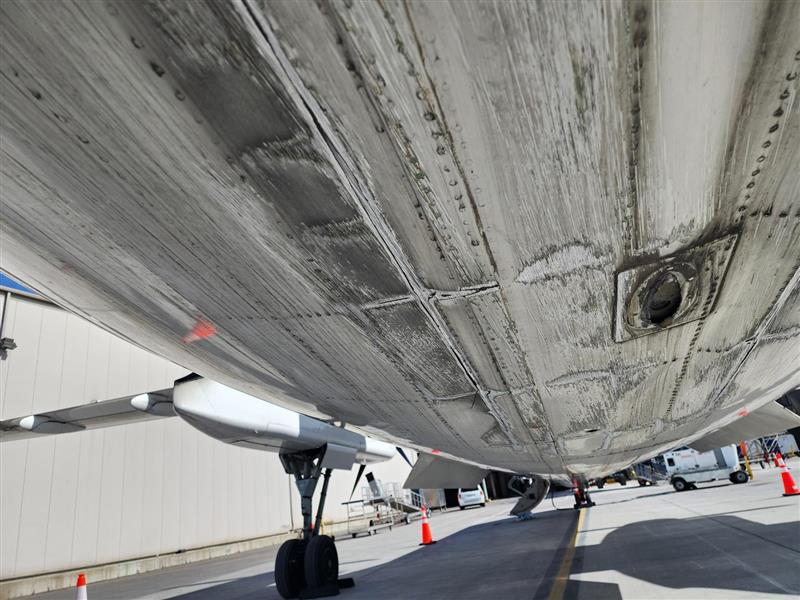Aft fuselage strike and hard landing
WestJet Encore Ltd.
Bombardier Inc. DHC-8-402, C-GJWE
Calgary International Airport (CYYC), Alberta
The occurrence
On 13 April 2024, a Bombardier Inc. DHC-8-402 aircraft, operated by WestJet Encore Ltd., was on a flight from Fort McMurray Airport, Alberta, to Calgary International Airport, Alberta.
Upon landing, the aircraft’s tail contacted the runway, resulting in a “TOUCHED RUNWAY” annunciation in the cockpit. The aircraft taxied to the gate, the passengers were deplaned, and the baggage was unloaded as normal. No injuries were reported.
After the flight, the maintenance team determined that there was significant damage to the lower aft fuselage, which resulted in the aircraft being removed from service.
Media materials
Investigation information
Download high-resolution photos from the TSB Flickr page.
Class of investigation
This is a class 4 investigation. These investigations are limited in scope, and while the final reports may contain limited analysis, they do not contain findings or recommendations. Class 4 investigations are generally completed within 220 days. For more information, see the Policy on Occurrence Classification.
TSB investigation process
There are 3 phases to a TSB investigation
- Field phase: a team of investigators examines the occurrence site and wreckage, interviews witnesses and collects pertinent information.
- Examination and analysis phase: the TSB reviews pertinent records, tests components of the wreckage in the lab, determines the sequence of events and identifies safety deficiencies. When safety deficiencies are suspected or confirmed, the TSB advises the appropriate authority without waiting until publication of the final report.
- Report phase: a confidential draft report is approved by the Board and sent to persons and corporations who are directly concerned by the report. They then have the opportunity to dispute or correct information they believe to be incorrect. The Board considers all representations before approving the final report, which is subsequently released to the public.
For more information, see our Investigation process page.
The TSB is an independent agency that investigates air, marine, pipeline, and rail transportation occurrences. Its sole aim is the advancement of transportation safety. It is not the function of the Board to assign fault or determine civil or criminal liability.
